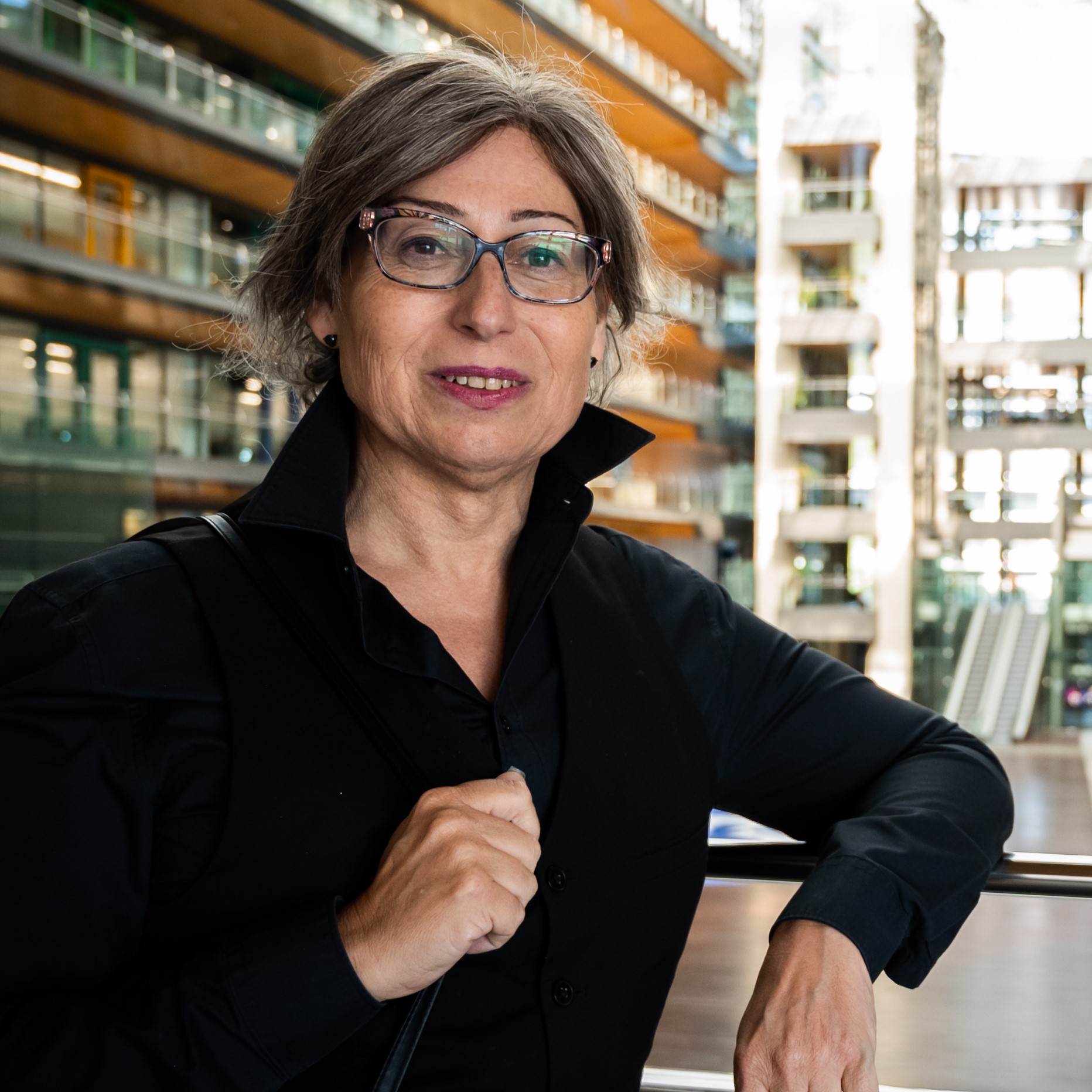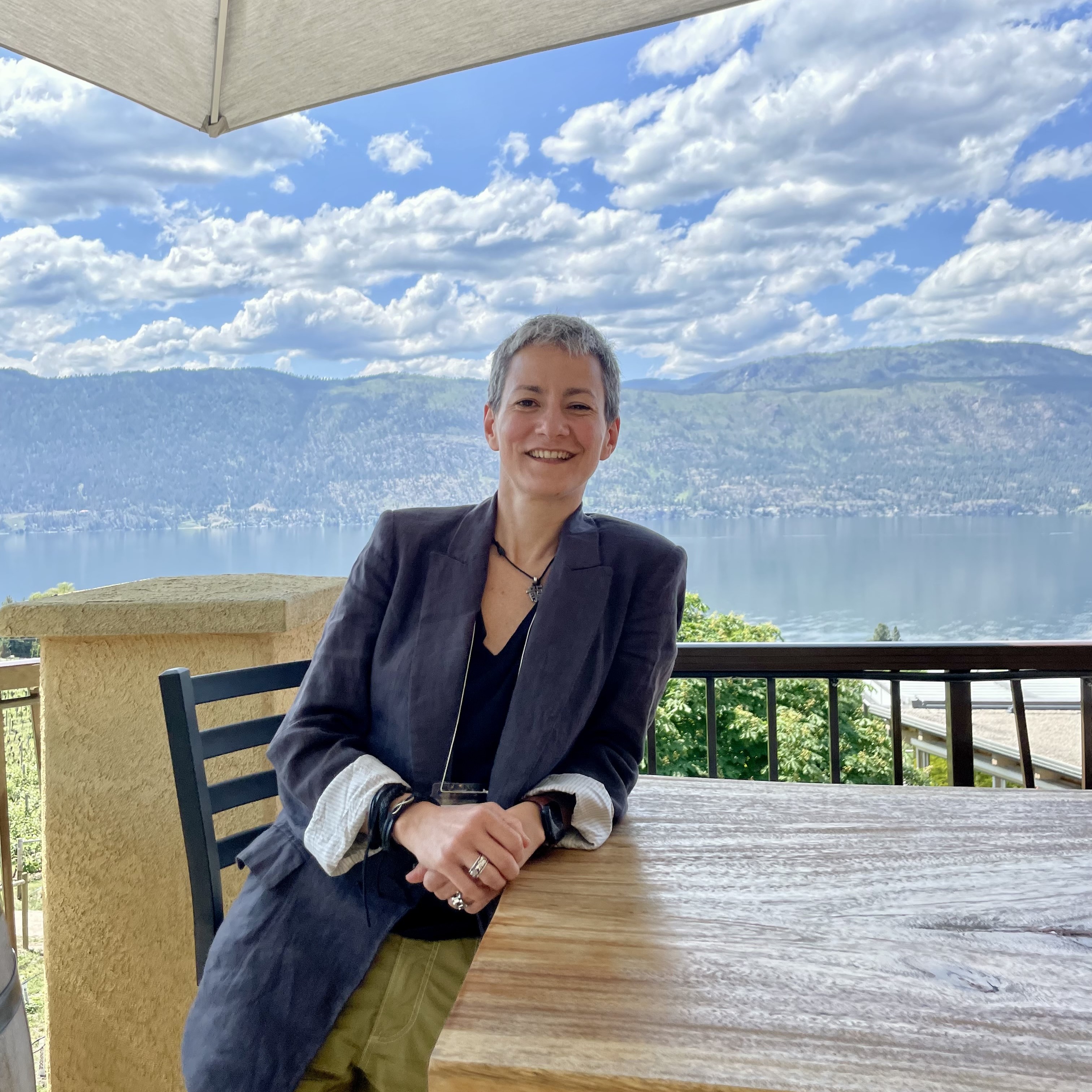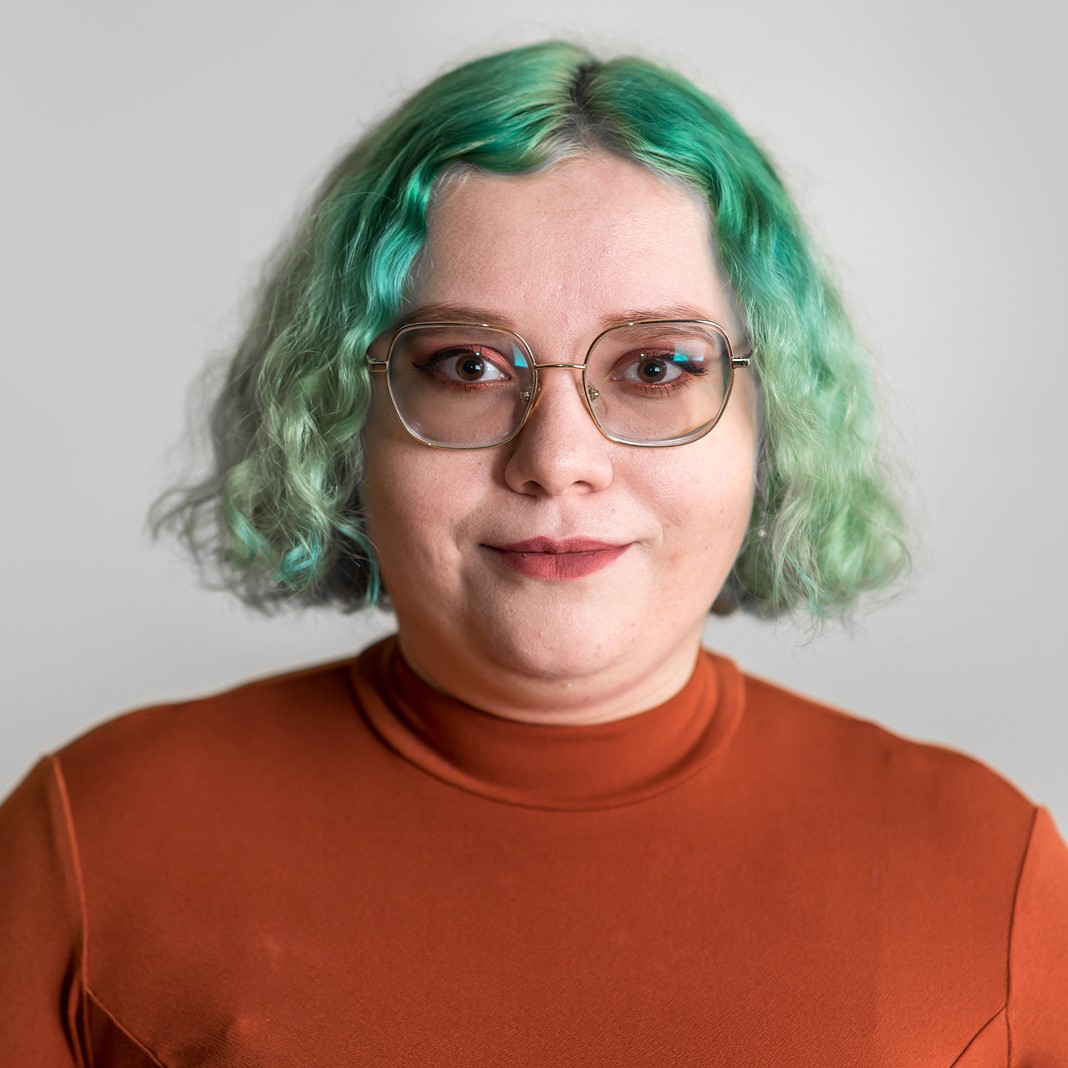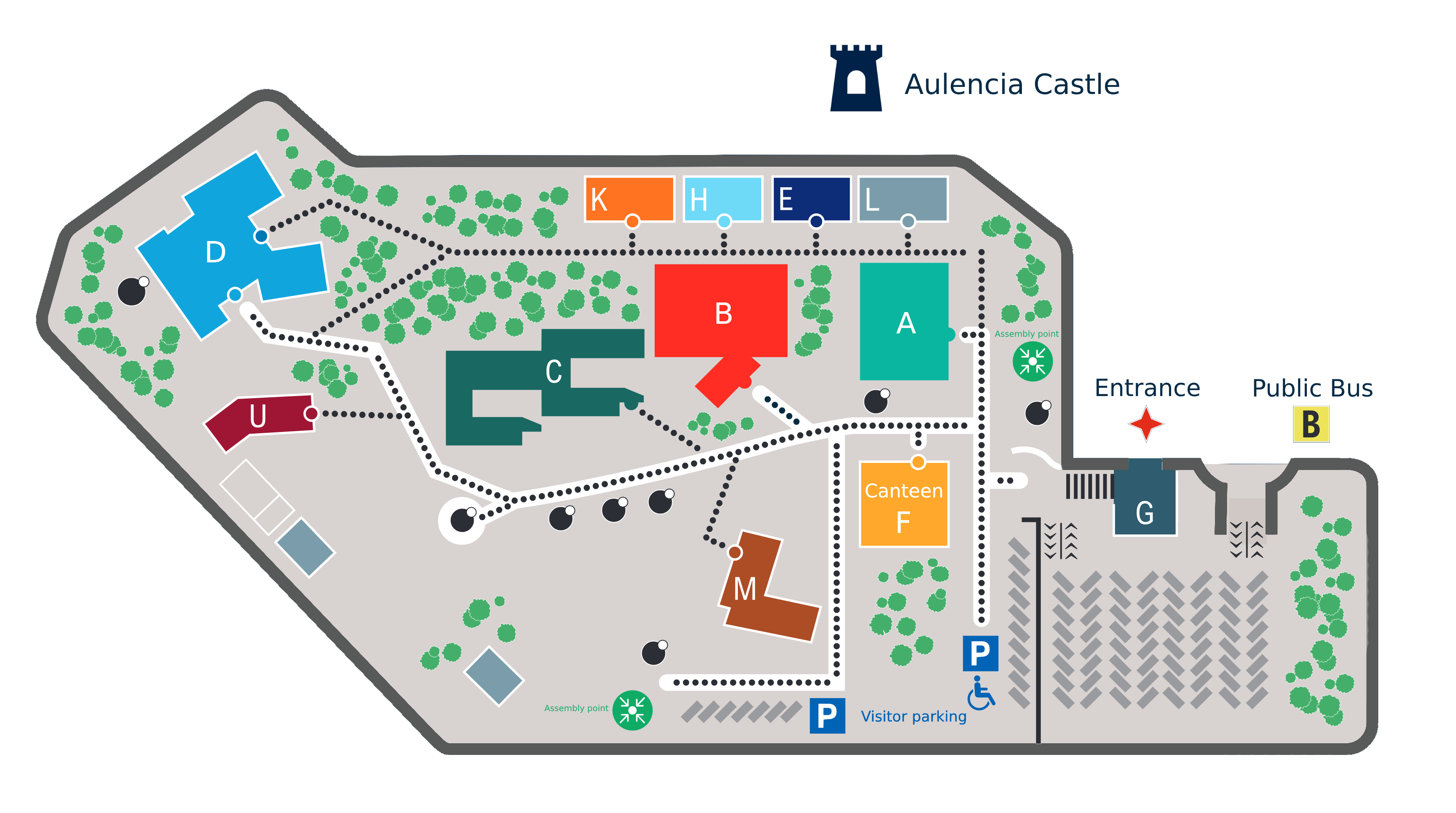Home - A call for LGTBIQA rights in STEM
November 18: A call for LGTBIQA+ rights in STEM
ESAC, Madrid
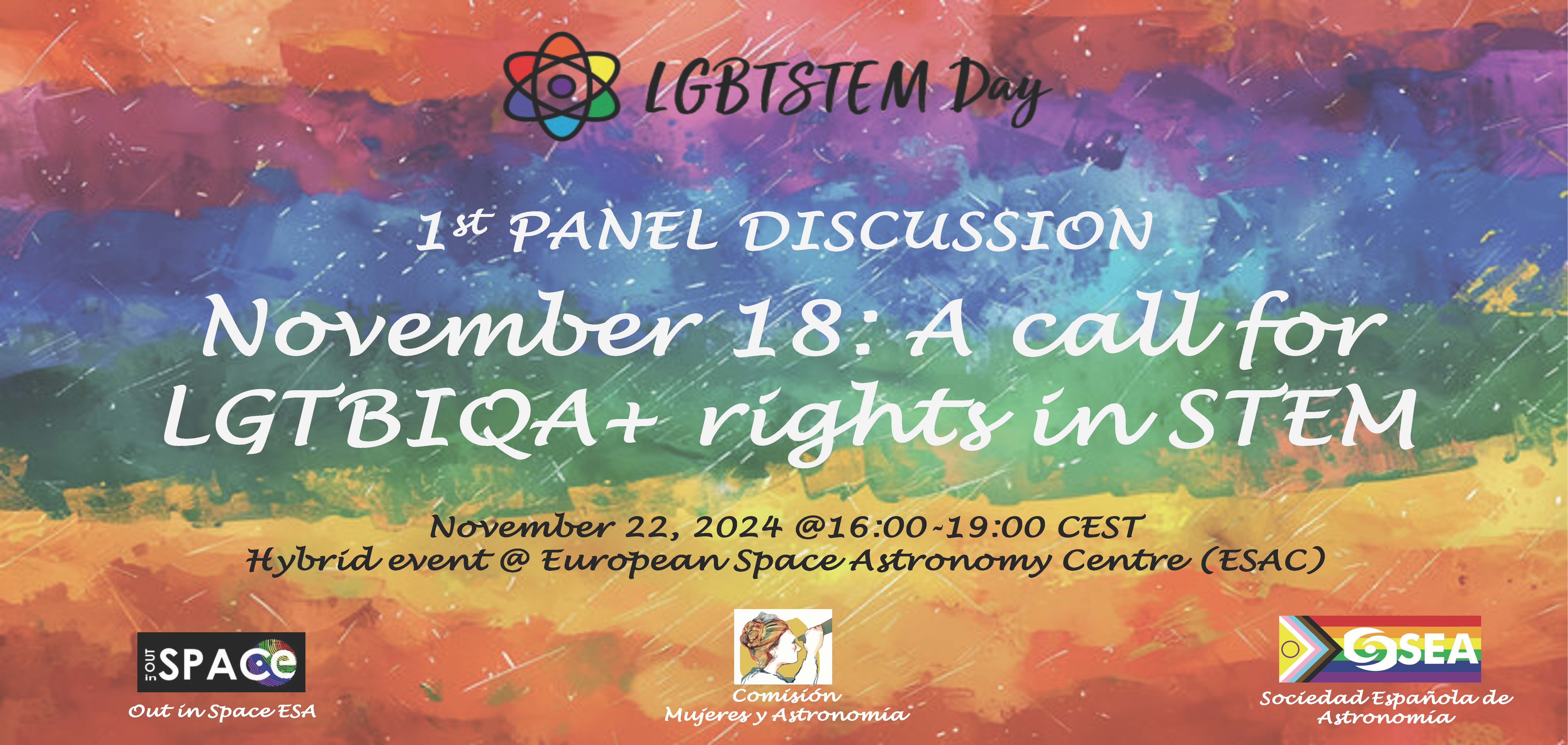
November 18 is marked as the ‘International Day of LGTBIQA+ people in STEM’. This day celebrates and recognises the contributions, aspirations and challenges that the LGTBIQA+ community encounters in the fields of science, technology, engineering and mathematics.
The Out in Space group at the European Space Astronomy Centre (ESAC) and the Women and Astronomy Committee (CMyA) of the Spanish Astronomical Society (SEA) have joined forces to launch the 1st panel discussion ‘November 18: A call for LGTBIQA+ rights in STEM’. In this event we will count with the special presence of four great experts in STEM, who proudly represent the LGTBIQA+ community in their field of expertise.
The speakers are:
Salmacís Barquín, she/her (Electrical Engineer)
|
|
Dr. Salma-Julian Barquin obtained her Electrical Engineering degree at Comillas University in 1988 and her Physics degree at UNED University in 1994. She finished her Ph. D. degree at Comillas University in 1993 about power systems voltage stability. She works since July 2012 at the Regulatory Affairs Department in Endesa (Enel Group), on Spanish and European regulation. Formerly she has been Professor at Comillas University. Her professional activities have revolved around technical, economic and regulatory analysis of energy systems. She is author or coauthor of 5 books and more than 100 papers in peer-reviewed journals and conferences. She has headed more than 25 research projects and has been a participant in many others. She has been visiting scientist at the Massachusetts Institute of Technology (USA) and visiting scholar at the University of Cambridge (UK). She is a member of PRISMA and other LGBTQI+ societies. |
Marina Logares, she/her (Mathematician)
|
|
Marina Logares Jiménez is a professor at the Complutense University of Madrid (UCM), where she also serves as co-principal investigator for the project "Mathematical Physics and Algebraic Geometry," funded by the Ministry of Science, Innovation, and Universities. Her research focuses on the geometric properties of solution spaces of equations from physics, such as Yang-Mills equations and Higgs bundle moduli. She has held positions at prestigious institutions, including the University of Plymouth, the University of Oxford, and the Max Planck Institute. Additionally, Marina is a strong advocate for gender equality, diversity, and inclusion and has received various accolades for her efforts, including being named a "Fellow of the Institute of Mathematics and its Applications" in 2020 and winning the 2024 Baeza Diversa Award for her contributions to both research and LGBTQ+ rights in science. |
Karen Macias, They/them, she/her (astroparticle physicist)
|
|
Karen Macías Cárdenas is an astroparticle physicist working on the connection between neutrinos and dark matter. They are currently a la Caixa INPhINIT Doctoral Fellow at the Institute for Theoretical Physics (IFT) in Madrid. Before moving to Spain, she obtained a MSc from Queen's University in Canada and a BSc in Physics from the Autonomous University of Baja California (UABC) in Mexico. Aside from academic research, Karen participates in science communication and DEI efforts. As a latina queer scientist with ADHD, they consider it of extreme importance to bring forward the needs of minority groups in STEM. |
Miguel Querejeta, he/him (Astrophysicist)
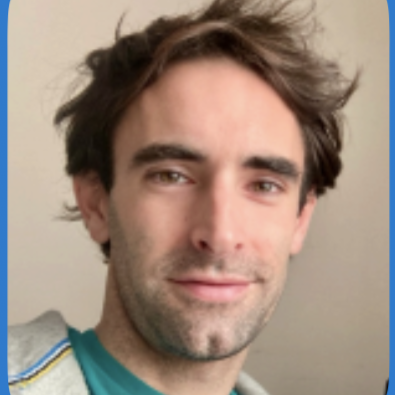
|
Miguel Querejeta Pérez (San Sebastián, 1989) graduated in Physics from the Complutense University of Madrid in 2012, earning the Extraordinary Bachelor's Award. In 2016, he obtained his PhD from the University of Heidelberg, with a thesis on the dynamics and evolution of galaxies carried out at the Max Planck Institute for Astronomy, which won the Spanish Astronomical Society Award for the best thesis of 2016 in the field of astronomy and astrophysics. He was an ESO Fellow in Garching (Munich), where he also took active part in the design and opening of the ESO Supernova planetarium and visitor centre. He has more than 150 scientific publications and is a member of important international committees. He is currently a civil servant at the Royal Observatory of Madrid, where he combines research and outreach activities. He has also finished a Bachelor degree in Spanish and Literature, and is particularly interested in connections between astronomy and humanities. |
Agenda and location
This event will take place on November 22nd at ESAC (Camino bajo del Castillo s/n, 28692, Villafranca del Castillo, Madrid, Spain), starting at 16.30 CET. The organisation will provide one bus (~38 spots) that will take the attendants from Moncloa (15:00 CET) to ESAC and back. The spots in such bus are limited and will be assigned based on the ‘first come, first served’ policy.
In case you cannot come in person, we will provide you with the link to virtually join the meeting.
Please, register to the event using the ‘Registration’ tab at your earliest convenience.
Since ESAC is an international place, the language used during the event will be in English.
- 15:00 - Pick up in Moncloa
- 15:30 - Registrations
- 15:45 - Guided tour at ESAC
- 16:30 - Panel discussion
- 18:00 - Social event (inc. drinks/snacks)
- 19:30 - Leave from ESAC
- 20:00 - Arrival in Moncloa
Details will be distributed a few days before the event.
MEETING ROOMS
This event will be held in room D002 of the D Building (see map below).
SHUTTLE BETWEEN MADRID AND ESAC
A bus will shuttle the attendees between Madrid city and ESAC.
It is recommended to find accommodation near the Moncloa metro station, as this will be the pick-up point of the bus shuttle.
| Time | Pick-up point | Destination | |
| Friday, 22th November | 15:00 | Moncloa | ESAC |
| 19:30 | ESAC | Moncloa |
Bus Information
Company: Hnos. Montoya. The bus will have a sign with ESA.
Pick up point address: C. Arcipreste de Hita, n. 10.
Please see below the map with the indicated bus meeting point in front of the Hotel Exe Moncloa:
- Removed a total of (18) style text-align:center;
- Removed a total of (8) style text-align:left;
- Removed a total of (11) style text-align:justify;
- Removed a total of (4) align=middle;
- Removed a total of (7) style margin:0;
- Removed a total of (5) align=center.
- Removed a total of (1) border attribute.








































 Sign in
Sign in
 Science & Technology
Science & Technology
